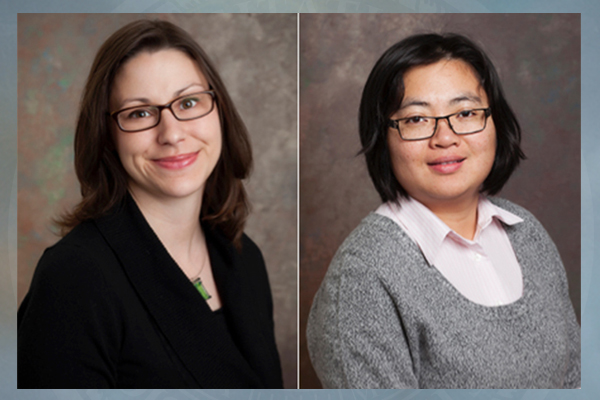
Digital citizenship
UD study tracks, analyzes political behavior on mobile devices
8:40 a.m., July 17, 2014--As tablets and other mobile devices become an increasingly common part of everyday life, researchers in political communication are focusing more of their attention on how people use that technology to access news and other information.
The limitation of those studies, according to the University of Delaware’s Lindsay Hoffman, is that they have relied on the users’ reports about their own behavior.
Research Stories
Chronic wounds
Prof. Heck's legacy
“These devices have become such an entrenched part of our lives that who can really accurately gauge their own media use?” said Hoffman, associate professor of communication. “Scholars have surveyed people about how and why they use media, but that use is very fluid. It’s so interspersed with other daily activities that most people would find it difficult to say exactly how many minutes they spend on particular kinds of websites.”
Hoffman, who has been researching media use for a decade and is also affiliated with UD’s Center for Political Communication, set out to conduct a more objective analysis of mobile device use. After surveying some 800 people and meeting with focus groups in order to select a useful sample, she provided 20 participants with state-of-the-art tablets and tracked their use over four months during the 2012 presidential campaign season.
Each tablet — with its user’s knowledge — tracked every website visited and the time spent on each. The participants were told to use the devices as much or as little as they wanted, but they proved popular, Hoffman said. When the study ended and the tablets were returned, some of the users asked for advice on buying a similar device.
With intensive work by nine students over the past three years, each website was then categorized by type and political leaning, from conservative to liberal, and the results were coded for computer analysis.
Hoffman called the project “a massive undertaking” that was possible only with the students’ assistance and with the collaboration of UD computer scientist Hui Fang, who conducted the data mining. The resulting article, co-authored by Hoffman and Fang, has been accepted for publication in the Journal of Information Technology and Politics, where it is now available online.
“The data analysis in this project is a perfect example of ‘big data’ analysis,” said Fang, assistant professor of electrical and computer engineering and of computer and information sciences. “The main goal is to understand user behaviors based on the traces they left when surfing on the Internet,” a challenge that she called “not a trivial task.”
The findings included:
- Users spent more time with online aggregators (such as Google), recreational sites (playing games, for example) and social networking sites than with news or political sites.
- They tended to overestimate the time they spent with online news, but when they were on news sites, they spent an average of 10 minutes on each page, with national and regional news the most popular.
- Users showed what Hoffman called “selective exposure,” meaning that they were much more likely to visit sites that shared their liberal or conservative point of view rather than seeking out opposing ideologies.
Hoffman noted that because only 20 people were tracked, the study has limited use in generalizing about user behavior. Instead, she said, the significance is in demonstrating that this type of tracking method can be used for further research.
“To say that the Internet has radically changed the way people get their news in the new digital era is an understatement,” she wrote in the journal article. “As technology use changes, so must our methodologies to advance research and theory in information technology and politics.”
Article by Ann Manser








